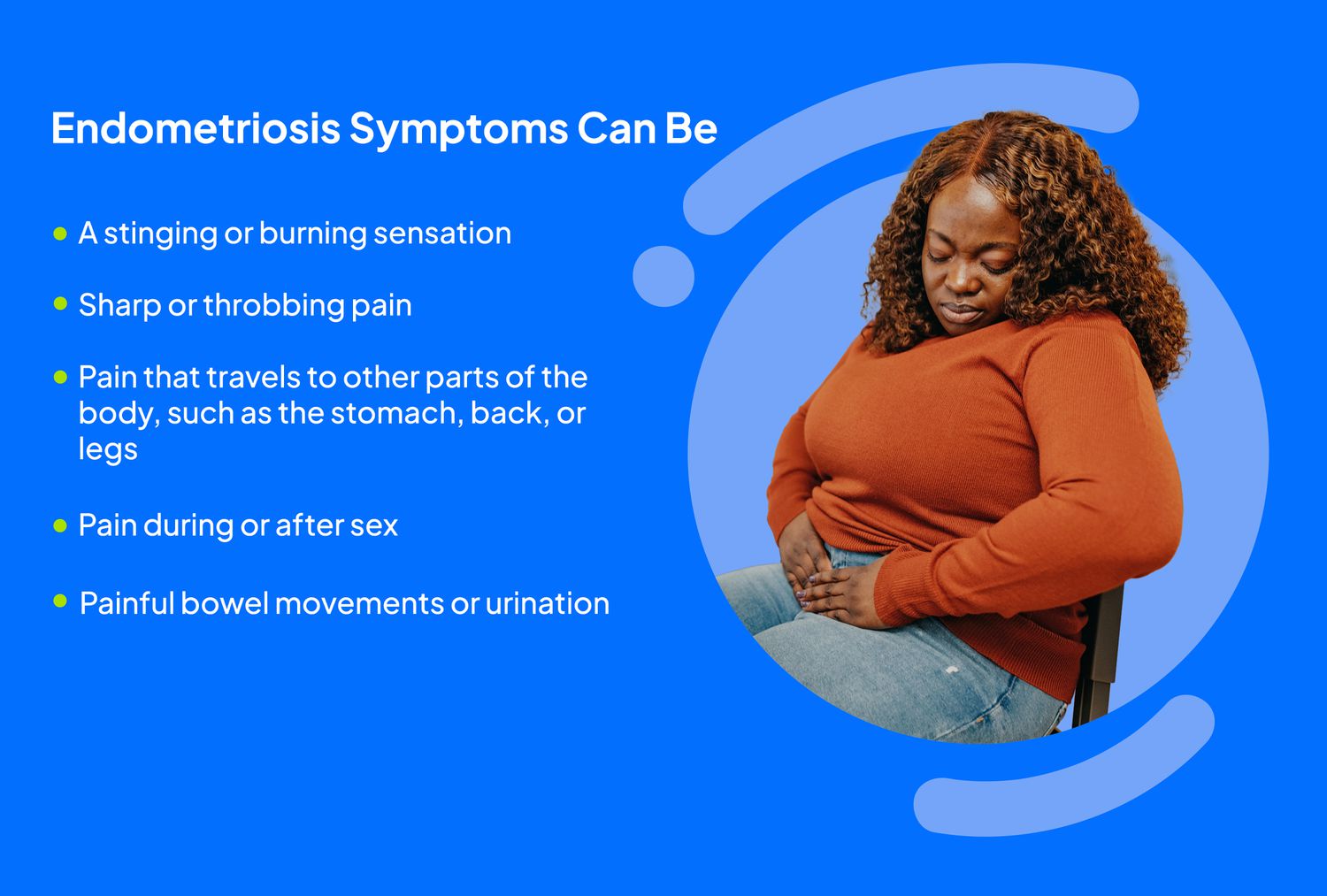Recognizing the Indications and Manifestations of Endometriosis

Endometriosis is a condition that occurs when cells similar to the endometrium, which lines the inside of the uterus, grow outside of the uterus. These cells often grow in or near reproductive organs but can appear anywhere, including on the bladder and colon. Symptoms of endometriosis include painful periods, cramping, and other related symptoms.
More than 10% of people who were born with a uterus are affected by endometriosis. Unfortunately, diagnosing the condition can be difficult because symptoms vary and can be similar to other conditions. Many people wait nearly 10 years to receive an accurate diagnosis.
Knowing the signs of endometriosis can encourage you to seek medical care if you experience symptoms and begin treatment sooner. Severe pain during periods that limits function or ability to attend school or work may be a sign of endometriosis.
According to a study published in Frontiers in Cellular Neuroscience, more than 60% of women with endometriosis reported experiencing severe pelvic pain. Women with endometriosis were 13 times more likely to report pelvic pain compared to those without the condition. Endometriosis pain can be described as stinging, burning, sharp, or throbbing. Additional types of pain can also occur, including:
Nausea and vomiting can also accompany endometriosis pain.
30% to 50% of people with endometriosis experience infertility. It may be difficult to become pregnant due to endometriosis making it hard to conceive. Some theories suggest that endometriosis causes infertility due to:
Endometriosis can cause changes in menstrual cycles such as longer or shorter periods or spotting. One study found that people with endometriosis had more gastrointestinal (GI) symptoms than people without the condition. Symptoms can include stomach pain, diarrhea, and constipation. Endometriosis can also co-occur with irritable bowel syndrome (IBS).
If you have endometriosis, your body produces cytokines that cause inflammation. Your immune system works to reduce inflammation, which can leave you feeling fatigued. Painful symptoms of endometriosis can also contribute to feeling exhausted. Fatigue can affect daily life, relationships, school, and work, so seeking medical care is important.
If you experience cramps that interfere with daily activities or do not respond to pain relief, seeking medical care is recommended. Laparoscopic surgery is currently the gold standard for diagnosing endometriosis.
You may also want to see your healthcare provider if you're having trouble conceiving. While a variety of conditions can cause infertility, it's helpful to know if endometriosis is making it difficult for you to get pregnant. Your healthcare provider can also refer you to a fertility specialist and recommend certain treatments for infertility, such as medications, in vitro fertilization (IVF), and intrauterine insemination (IUI).
Endometriosis occurs when the cells that are similar to the tissue that lines the inside of the uterus (called the endometrium) grow outside of the uterus. Most commonly, people with endometriosis have pelvic pain, cramping, and changes to their menstrual cycle. You might also experience stomach-related symptoms (like diarrhea), nausea or vomiting, fatigue, and infertility.
If your periods are so painful that they interfere with your daily activities, a healthcare provider can help you find out whether you have endometriosis. Reaching out to a provider can get you an accurate diagnosis and help you start treatment sooner.




